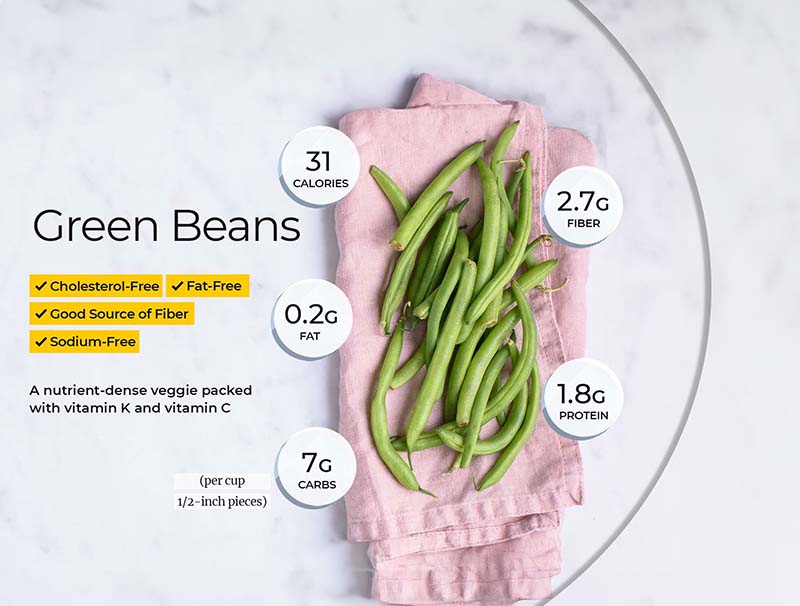Green beans, often overlooked as a mundane vegetable from our childhood, actually hold a hidden potential in weight loss diets. If you’re wondering, “Are green beans good for weight loss?” the answer is yes!
This low-calorie and low-fat vegetable can be a versatile and nutritious addition to your diet plan. Discover the surprising benefits of green beans and learn how to creatively incorporate them into your meals to support your health and weight loss goals.
Related articles
- White Kidney Beans for Weight Loss: Effortless Diet Boost.
- Are Lentils Good for Weight Loss: Health Benefits.
- Are Figs Healthy for Weight Loss? Uncovering the Facts!.
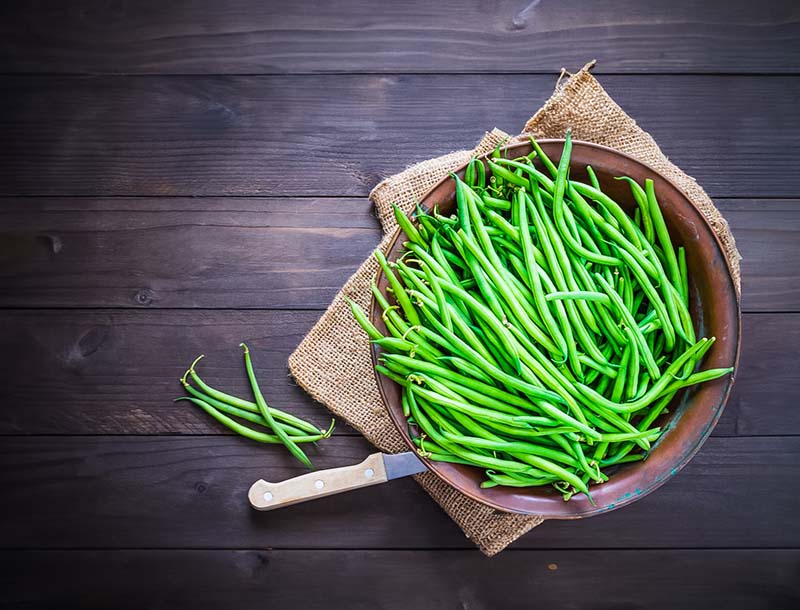
1. Are Green Beans Good for Weight Loss?
Green beans are a fantastic choice for those looking to shed some pounds. Their low-calorie content, with only 31 calories per cup of raw beans, makes them an ideal component in a weight loss diet. Additionally, their high fiber content, at 2.7 grams per cup, aids in digestion and helps keep you feeling full longer, which is crucial for managing hunger and reducing overall calorie intake.
Incorporating green beans into a well-balanced, calorie-controlled diet enhances their effectiveness in promoting weight loss. Not only do they add volume to your meals without piling on extra calories, but they also provide essential nutrients that support overall health.
Note: Green beans are super versatile – you can steam, boil, or stir-fry them. They’re not just tasty but also packed with fiber, which is great for your digestion and can help keep your blood sugar levels steady. This makes them a smart pick for anyone, especially if you have diabetes.
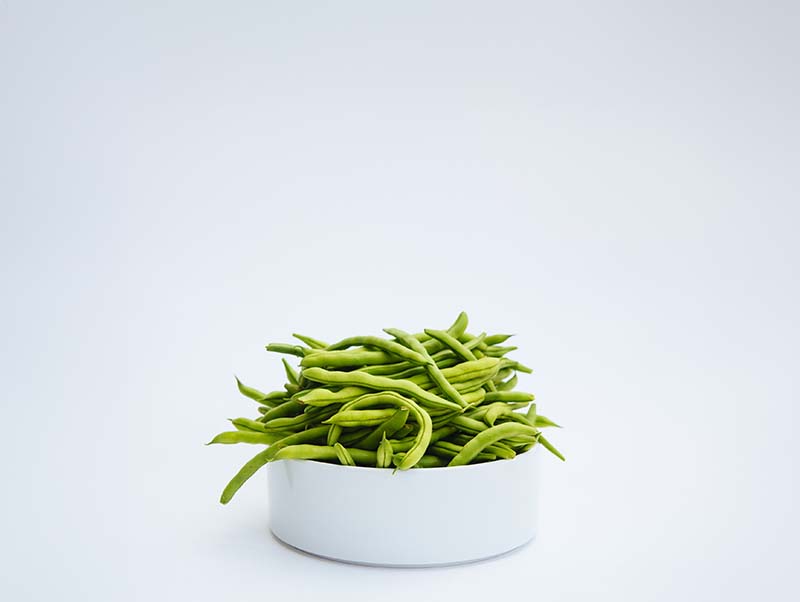
2. Benefits of Green Beans for Weight Loss
Green beans stand out as an excellent choice for those aiming to lose weight, thanks to their nutrient-rich profile, minimal calorie and fat content, and absence of cholesterol.
Calorie-light
Green beans are a nutritional powerhouse with surprisingly few calories. A 1-cup serving of raw green beans has just 31 calories. Green beans are versatile and can be munched on as a snack on their own, offering a satisfying crunch.
Alternatively, you can pair them with your favorite dips for a delightful mix of textures. However, keep an eye on the amount of dip you use. Dips and nut butters can be high in calories, and it’s easy to consume more than intended.
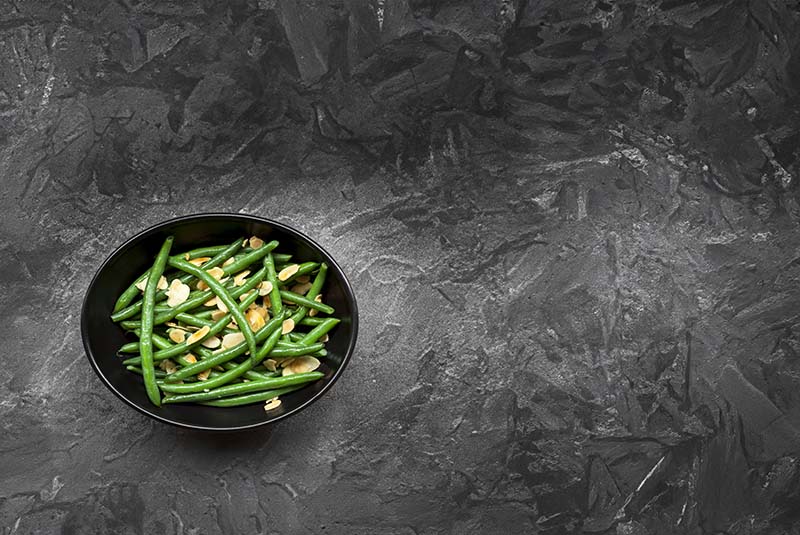
Fiber-rich
Green beans are a fantastic source of fiber, a crucial nutrient for overall health. Specifically, the soluble fiber in green beans can be a game-changer for heart health. It has been known to lower LDL cholesterol, commonly referred to as ‘bad’ cholesterol, thus contributing positively to cardiovascular wellbeing.
Beyond heart health, the fiber in green beans plays a significant role in maintaining a healthy digestive system. It aids in ensuring everything moves smoothly through your gut. However, for those with digestive conditions like irritable bowel syndrome, it’s important to note that certain types of fiber might not agree with your system. In such cases, green beans could potentially lead to discomforts like gas, bloating, or intestinal issues.
Nutrient-packed
Green beans are a nutritional gem, especially considering their low calorie count. Just one cup of raw green beans delivers a host of benefits: it contains only 31 calories, provides 1.83g of protein, a mere 0.22g of fat, 6.97g of carbs, 2.7g of dietary fiber, and 3.26g of sugar. This vegetable is an outstanding source of essential nutrients including vitamins C, A, folate, and K, as well as minerals like potassium. It’s also rich in beneficial antioxidants such as beta-carotene.
One of the standout features of green beans is their high vitamin K content, coupled with a good amount of calcium. These nutrients are crucial for building and maintaining strong, healthy bones, and they play a significant role in lowering the risk of bone fractures. Additionally, the B vitamins in green beans, particularly folate, are key to mental well-being. Adequate folate intake helps to lower homocysteine levels in the body. Elevated homocysteine can disrupt the production of mood-regulating hormones like serotonin, dopamine, and norepinephrine, which are essential for regulating mood, sleep, and appetite.
Low-fat
Green beans are great because they have almost no fat. This means you can get all the good stuff they offer, like vitamins and minerals, without worrying about too much fat. They’re really good for anyone trying to lose weight, as they’re healthy but won’t add extra fat to your diet.
Abundant in Antioxidants
Green beans are a powerhouse of antioxidants, making them an excellent addition to a healthy diet. They are not only rich in Vitamin C, which offers some antioxidant benefits, but also packed with flavonoids and carotenoids. These compounds are known for their inflammation-fighting properties. This is particularly beneficial for weight loss, as inflammation can impact hormones that regulate metabolism and appetite. By incorporating green beans into your diet, you can support your health and aid in weight management.
Low On the Glycemic Index
Green beans have a glycemic index (GI) of around 32, making them a low glycemic food, as foods with a GI of 55 or less are classified as such. Additionally, the glycemic load of green beans is incredibly low, at about 1.3.
The glycemic load is important as it considers the serving size of a food or drink to predict its impact on your blood sugar levels. Coupled with their high fiber content, green beans are excellent for curbing those mid-day sugar cravings.

Highly Hydrating
Green beans are really good at keeping you hydrated because they have a lot of water in them, considering their size. Staying hydrated is important for keeping your body and brain working well. It also helps your body absorb nutrients faster and get rid of waste quicker.
Metabolism-boosting
Beans are incredibly beneficial for heart health, particularly in managing metabolic syndrome. This syndrome is a combination of conditions that significantly increase the risk of heart disease, stroke, and diabetes. One of the key advantages of beans, including green beans, is their high dietary fiber content. This fiber helps in slowing down the absorption of carbohydrates, which in turn can enhance your metabolism and lower blood sugar levels.
Satiating and Satisfying
Green beans are great for helping you feel full after a meal. They have a lot of fiber, nutrients, and water, which all work together to make your stomach feel satisfied. This can help stop you from wanting to snack or eat too much, which means you might end up eating fewer calories and not gaining extra weight.
Incredibly Versatile
Green beans are incredibly adaptable and can be found in various forms – fresh in the produce section, frozen, or canned. There are numerous delicious ways to prepare them:
- Stir-fried with garlic and olive oil or butter
- Oven-roasting to bring out a bit of crunch and flavor
- Incorporating into a green bean casserole, a classic comfort food
- Stir-frying with a mix of other vegetables for a healthy and colorful dish
They can be steamed or roasted and served as a perfect side dish with meats and potatoes. Alternatively, they’re great stir-fried with noodles and a variety of vegetables. The beauty of green beans is their ability to blend into any dish, ensuring you get their health benefits in a variety of tasty ways.
3. Other Health Benefits of Green Beans
When you include green beans in your diet, especially to lose weight, you’re also getting a bunch of other great health benefits. Green beans are more than just good for weight loss; they’re packed with good stuff for your overall health.
May Contribute to Maintaining Strong Bones
Rich in vitamin K, green beans are a boon for bone health. This vitamin, vital in bone-building proteins, is abundant in green beans, as highlighted by the USDA. Harvard T.H. Chan School of Public Health emphasizes its role in bone formation. Research indicates a diet high in vitamin K links to improved physical function and reduced injury risks, like hip fractures in older women. Green beans also offer calcium, crucial for bone health, with insufficient calcium intake leading to weakened or improperly growing bones.
The Vitamin C In Green Beans May Aid in Supporting Your Immune System
Green beans, a USDA-recognized source of vitamin C, fortify your immune system. This antioxidant aids in collagen production and iron absorption, enhancing immune health.
Vitamin C is pivotal in infection resistance and wound healing, it combats free radicals, potentially preventing diseases like cancer and heart disease. While not a cold cure, regular intake of vitamin C-rich foods can alleviate cold symptoms, with one study noting an 8% ICU stay reduction through vitamin C supplements.
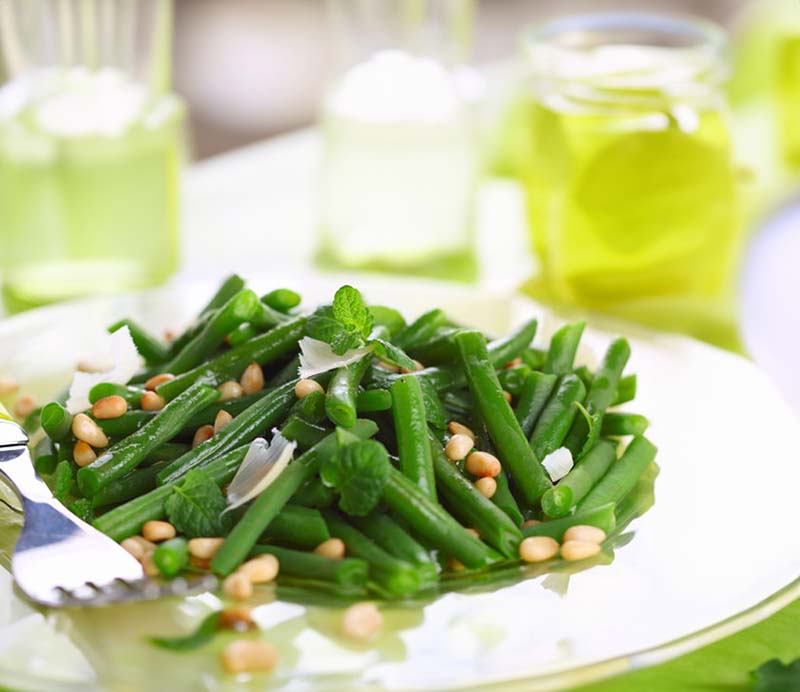
Can Contribute to a Lasting Feeling of Fullness
Many Americans lack sufficient dietary fiber, but green beans, a good fiber source per the USDA, can help. Fiber prolongs satiety and stabilizes blood sugar, says Malkani. Green beans’ low-calorie, high-volume nature, ideal for feeling full without overeating. Fiber’s role in satiation and digestion, highlighting its potential in weight loss and other health benefits like cholesterol and blood sugar reduction.
Contains Minerals and Other Nutrients That May Promote Heart Health
The fiber in green beans aids in reducing cholesterol and triglycerides, enhancing heart health. These veggies also pack heart-healthy nutrients like potassium, which lowers blood pressure.
Studies show a diet rich in potassium can counteract high sodium’s adverse effects. Green beans are also a source of folate, a heart-beneficial vitamin.

The Phytonutrients in Green Beans Excel as Antioxidants
Phytonutrients, found in green beans, are key in preventing diseases like arthritis and diabetes. Green beans contain antioxidants like phenols and flavonoids, which fight oxidative stress, a chronic disease catalyst. However, excessive antioxidant supplementation can be harmful, making food sources like green beans ideal. Vitamin C in green beans also acts as an antioxidant, protecting cells from damage.
May Support a Healthy Gut Microbiome
The fiber in green beans benefits not just digestion but also the gut microbiome. Fiber feeds beneficial gut bacteria, optimizing gut health.
Studies have shown that high-fiber diets increase gut diversity, crucial for overall health. Green beans’ pectin content also supports intestinal cell lining, lowers infection risks, and promotes gut bacteria diversity.
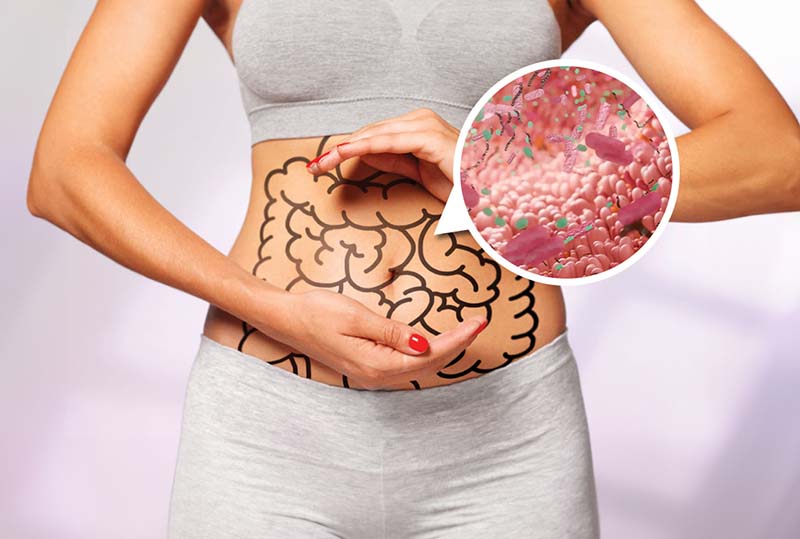
Could Contribute to Increased Energy Levels
Iron in green beans, vital for preventing fatigue, is essential in hemoglobin, transporting oxygen to muscles, explains Palumbo. While green beans provide some daily iron needs, combining them with other iron-rich foods can eliminate the need for supplements.
Additionally, their protein and carbohydrate content (2g and 7g per cup, respectively) contributes to sustained energy, as noted by the M.D. Anderson Cancer Center. Research even links protein-rich diets to improved sleep in overweight individuals, offering another energy boost.
Conclusion
Wrapping up, it’s clear that green beans are a fantastic choice for anyone asking, “Are Green Beans Good for Weight Loss?”. Green beans, with their low calorie and nutrient-rich profile, are excellent for weight management.
They keep you full and support overall health. Share your green bean weight loss stories with us and find more tips at HealthConnect. Your healthier lifestyle journey starts here!

Dr. Joyce Slater: Your Guide to Informed Health Choices
Dr. Joyce Slater shines as a distinguished expert in the field of nutrition and public health. Contributing her vast expertise to HealthConnectbc, she embodies a deep-seated passion for enhancing public well-being. As a respected figure in her field. Dr. Slater’s academic journey and professional achievements are nothing short of inspirational.
Holding a significant position as a researcher and educator, Dr. Slater has delved deeply into the intricacies of food literacy and nutritional science. Her work, prominently featured in numerous esteemed scientific publications, underscores her dedication to expanding our understanding of food’s role in health and society.
At the heart of Dr. Slater’s professional ethos is a profound desire to positively impact individual lives through education and research. She often says, “Empowering people with the knowledge to make healthier choices is the most rewarding aspect of my work.” This principle is the cornerstone of her involvement with HealthConnectbc, where she strives to provide reliable and practical health advice.
Dr. Slater’s contributions to HealthConnectbc are multifaceted: academically, she offers insights into the complex world of nutrition and health, enhancing both public understanding and professional practices. Additionally, she is instrumental in guiding and inspiring the next generation of health professionals, thus fostering future excellence in the field.
Juggling rigorous research with her educational duties, Dr. Slater demonstrates an unwavering commitment to her profession. Her approachable nature and genuine concern transcend the confines of academia, touching the lives of everyone she interacts with. Dr. Slater looks forward to continuing her journey of discovery and education, dedicated to the ongoing improvement of public health and nutrition.
At HealthConnectbc, Dr. J. Slater is not just a contributor; she is a guiding light, dedicated to enlightening and motivating individuals towards a healthier and more informed lifestyle.
PUBLISHED ARTICLES
- Food literacy competencies: A conceptual framework for youth transitioning to adulthood (2018)
- Self-perceived eating habits and food skills of Canadians (2016)
- Challenges to acquiring and utilizing food literacy: Perceptions of young Canadian adults (2016)
- Socio-demographic and geographic analysis of overweight and obesity in Canadian adults (2009)
- Sustainable well-being: Concepts, issues, and educational practices (2014)


